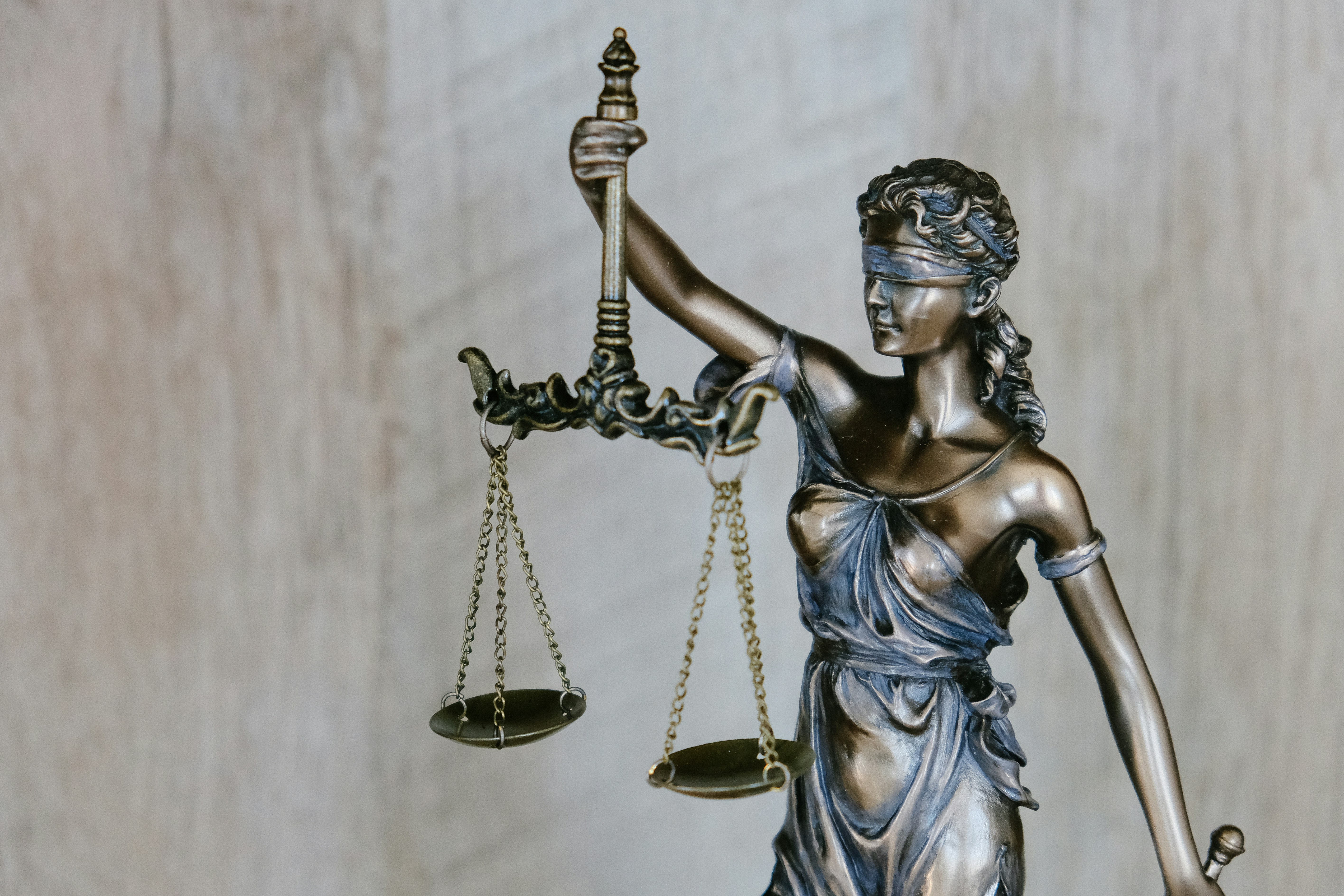Have you ever wondered if credit repair is legal? If so, you’re not alone. Many people are curious about the legality behind credit repair and whether or not it’s a legitimate solution to their financial woes. In this article, we’ll explore the ins and outs of credit repair and provide you with a clear understanding of its legality. So, sit back, relax, and let’s solve the mystery together!
Overview of Credit Repair
Definition of credit repair
Credit repair is the process of improving and fixing your credit history to enhance your creditworthiness. It involves addressing and resolving any inaccuracies, errors, or negative items on your credit report that may be dragging down your credit score.
Importance of credit repair
Having good credit is essential for various aspects of your financial life. It impacts your ability to qualify for loans, credit cards, and favorable interest rates. Credit repair can help you remove or correct inaccurate information, which can ultimately lead to better credit scores and more financial opportunities.
Common misconceptions
There are some misconceptions about credit repair that can often discourage individuals from pursuing it. One common myth is that credit repair is illegal or unethical. However, when done lawfully and ethically, credit repair is a legitimate and valuable service that helps individuals improve their credit. It is also important to note that credit repair does not guarantee an immediate change in credit scores or the removal of all negative items. It is a process that requires time and effort to achieve lasting results.
Legal Regulations and Agencies
Federal laws governing credit repair
Credit repair is governed by several federal laws that protect consumers and regulate the credit industry. These laws include the Fair Credit Reporting Act (FCRA) and the Credit Repair Organizations Act (CROA).
The Fair Credit Reporting Act (FCRA)
The FCRA is a federal law that establishes guidelines for how credit reporting agencies collect, maintain, and share consumer credit information. It gives consumers the right to access and dispute their credit reports and holds credit reporting agencies responsible for ensuring the accuracy of the information they report.
The Credit Repair Organizations Act (CROA)
The CROA is a federal law that specifically addresses credit repair organizations and their practices. It requires credit repair companies to provide consumers with certain disclosures, maintain honesty and transparency in their advertising, and prohibits them from making false claims or demanding advance payment for services.
Role of the Consumer Financial Protection Bureau (CFPB)
The Consumer Financial Protection Bureau (CFPB) is a government agency responsible for enforcing federal consumer financial laws and regulations. It plays a crucial role in overseeing the credit repair industry, ensuring compliance with the FCRA and CROA, and handling consumer complaints related to credit repair.
State-level regulations
In addition to federal laws, some states have implemented their own regulations and licensing requirements for credit repair companies. This ensures that credit repair organizations operate within the boundaries set by each state and provide reliable services to consumers.
Credit Repair Companies
Services provided by credit repair companies
Credit repair companies offer a range of services to help individuals improve their credit. These services typically include reviewing credit reports, identifying inaccuracies or errors, disputing negative items with credit bureaus, and providing guidance on credit improvement strategies.
Difference between legitimate and fraudulent companies
It is essential to differentiate between legitimate credit repair companies and fraudulent ones. Legitimate companies are transparent about their services, fees, and expected results. They follow the laws and regulations governing the industry and have a track record of successfully helping clients repair their credit. On the other hand, fraudulent companies may make false promises, operate illegally, and charge exorbitant fees without delivering the desired results.
Industry regulations and accreditation
To maintain integrity and quality in the credit repair industry, various organizations regulate and accredit credit repair companies. These organizations include the National Association of Credit Services Organizations (NACSO) and the Better Business Bureau (BBB). Accreditation from these organizations can be a sign of a trustworthy credit repair company.
Warning signs of credit repair scams
It is crucial to be aware of the warning signs that may indicate a credit repair scam. Some red flags include companies that guarantee specific results, demand upfront payment before any work is done, refuse to provide written contracts, or advise illegal tactics such as creating a new identity. Being vigilant can help you avoid falling victim to fraudulent credit repair practices.
DIY Credit Repair
Understanding the credit repair process
Before embarking on DIY credit repair, it is important to understand the process. This includes obtaining copies of your credit reports, reviewing them for inaccuracies or errors, and initiating the dispute process with the credit bureaus.
Steps to take for successful DIY credit repair
To successfully repair your credit on your own, there are several steps you can take. These include gathering documentation to support your dispute claims, drafting dispute letters to credit bureaus, keeping detailed records of correspondence, and following up regularly to ensure the progress of your disputes.
Benefits and drawbacks of DIY credit repair
DIY credit repair has its advantages and disadvantages. On one hand, it can save you money by avoiding the fees charged by credit repair companies. It also allows you to have full control over the process. However, it requires a significant amount of time, effort, and knowledge about credit laws and regulations. Additionally, navigating the dispute process can be complex and frustrating without professional guidance.
Effectiveness of Credit Repair
Factors determining the effectiveness of credit repair
The effectiveness of credit repair is influenced by several factors. The accuracy and validity of the negative items being disputed, the responsiveness of credit bureaus and creditors, and the individual’s commitment to the credit repair process all play a role in determining the outcome.
Realistic expectations for credit repair outcomes
It is important to have realistic expectations when it comes to credit repair. While credit repair can result in the removal or correction of inaccurate information, it may not completely eliminate all negative items from your credit report. The goal of credit repair is to improve your creditworthiness and boost your credit scores, but it may take time to achieve significant results.
Success stories and testimonials
Many individuals have had success with credit repair and have seen improvements in their credit scores and overall financial situation. These success stories and testimonials serve as inspiration and motivation for those seeking to repair their credit. However, it is important to remember that each person’s credit repair journey is unique, and results can vary.
Dealing with Credit Reporting Agencies
Understanding credit reports and scores
Credit reports provide detailed information about an individual’s credit history, including accounts, payment history, credit inquiries, and public records. Credit scores, on the other hand, are numerical representations of an individual’s creditworthiness and are based on the information in their credit report.
Disputing inaccuracies on credit reports
If you identify inaccuracies or errors on your credit reports, you have the right to dispute them. This can be done by contacting the credit reporting agencies and providing supporting documentation to prove the inaccuracies. Credit reporting agencies are required to investigate the disputes and make appropriate corrections if necessary.
Filing complaints with credit reporting agencies
In the event that you encounter difficulties or discrepancies during the dispute process, you have the option to file complaints with the credit reporting agencies. This can be done online, by phone, or by mail. Credit reporting agencies are obligated to address these complaints and provide a response within a designated timeframe.

Handling Creditors and Collections
Negotiating with creditors
If you are facing financial difficulties and struggling to make payments to your creditors, it is important to proactively communicate with them. Negotiating payment plans, requesting lower interest rates, or seeking debt settlement options can help you manage your debts more effectively and potentially improve your credit standing.
Dealing with collection agencies
When debts are sold to collection agencies, it is essential to know your rights and how to handle their collection efforts. Understanding the Fair Debt Collection Practices Act (FDCPA) can help you address the collection agencies’ actions, request validation of the debt, or negotiate settlements.
Understanding the impact of settlements
Settling debts with creditors or collection agencies can have both positive and negative impacts on your credit. While the settlement itself may stay on your credit report as a negative item, resolving the debt can also demonstrate responsible financial behavior and improve your creditworthiness over time.
Alternative Credit Improvement Methods
Building credit through responsible financial habits
One of the most effective ways to improve and maintain good credit is by adopting responsible financial habits. This includes making timely payments, keeping credit card balances low, diversifying your credit mix, and avoiding excessive credit inquiries.
Using secured credit cards
Secured credit cards can be a helpful tool for individuals looking to build or rebuild credit. These cards require a cash deposit as collateral, and responsible use of the secured card can help establish a positive credit history over time.
Credit counseling and debt management programs
Credit counseling agencies offer guidance and support in managing debts, improving credit, and developing a financial plan. Debt management programs, provided by some credit counseling agencies, can help individuals consolidate their debts and make a single monthly payment to the agency, who then distributes it to creditors.
Credit Repair and Creditworthiness
Credit repair’s impact on creditworthiness
The primary goal of credit repair is to improve an individual’s creditworthiness. By identifying and addressing negative items on credit reports, credit repair can boost credit scores and make individuals more attractive to lenders and creditors.
Qualifying for loans and credit after repair
After completing the credit repair process, individuals may find it easier to qualify for loans, such as mortgages, auto loans, or personal loans. However, it is important to note that credit repair is just one factor that lenders consider when making credit decisions, and other factors, such as income and debt-to-income ratio, also play a significant role.
Establishing and maintaining good credit
Credit repair also emphasizes the importance of establishing and maintaining good credit habits for the long term. It encourages individuals to continue practicing responsible financial behaviors, such as paying bills on time, avoiding excessive debt, and regularly checking their credit reports for errors.
Best Practices and Resources
Choosing reputable credit repair services
When considering credit repair services, it is crucial to choose reputable and trustworthy organizations. Researching the company’s reputation, checking for accreditation, reading reviews, and comparing services and fees can help you make an informed decision.
Educational resources for DIY credit repair
For those interested in pursuing DIY credit repair, there are numerous educational resources available. Books, online articles, and reputable websites provide guidance on credit repair strategies, sample dispute letters, and information on credit laws and regulations.
Maintaining long-term credit health
Credit repair is not just a one-time process but rather a lifelong commitment to maintaining good credit health. Regularly reviewing credit reports, practicing responsible financial habits, and seeking professional guidance when necessary can help individuals maintain a healthy credit profile and achieve their financial goals.
In conclusion, credit repair plays a vital role in improving creditworthiness and opening up financial opportunities. By understanding the legal regulations, working with reputable credit repair companies or implementing DIY strategies, individuals can successfully address inaccuracies on their credit reports. Additionally, by adopting responsible financial habits and seeking alternative credit improvement methods, individuals can establish and maintain good credit in the long run. With realistic expectations, knowledge about handling credit reporting agencies and creditors, and access to helpful resources, anyone can take control of their credit and pave the way to a brighter financial future.




